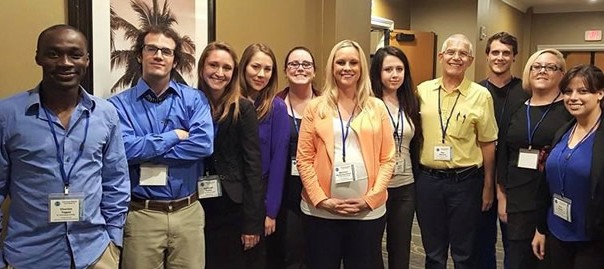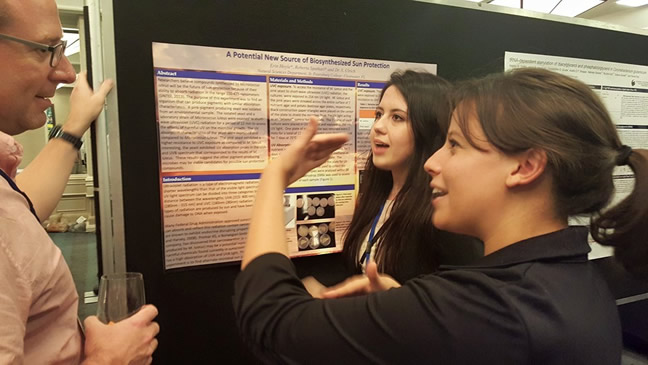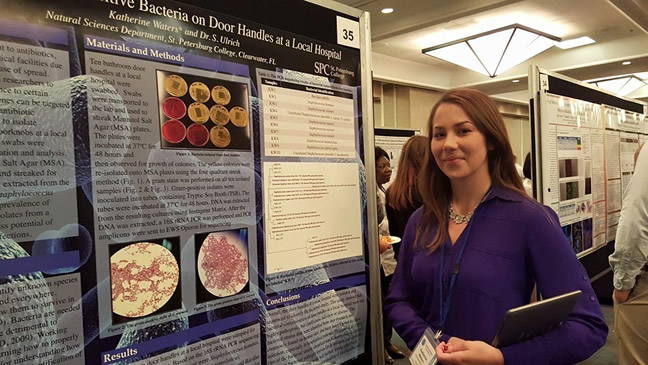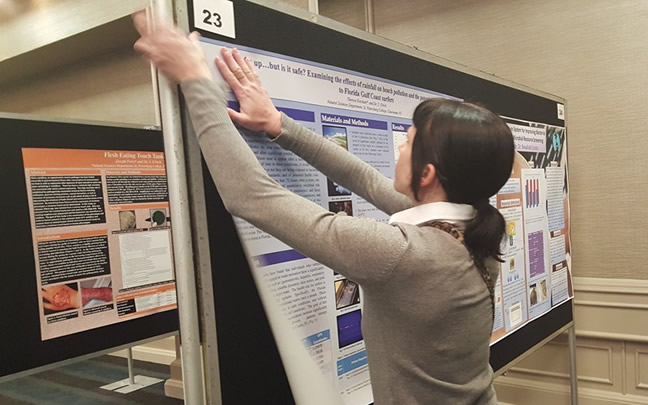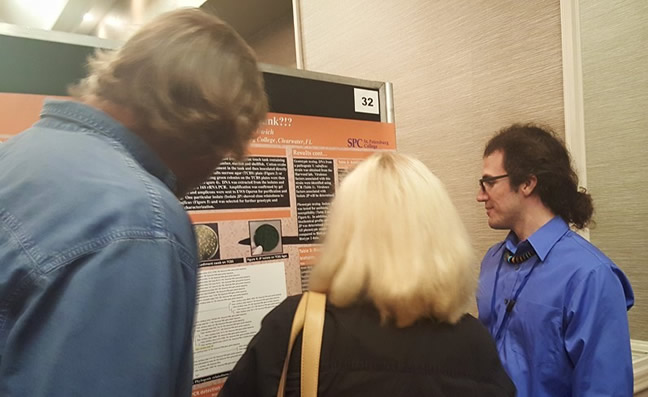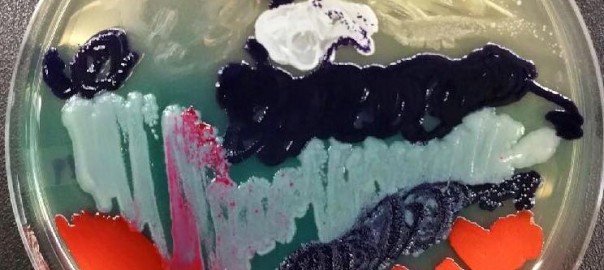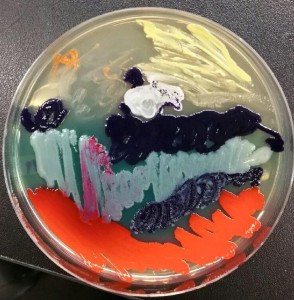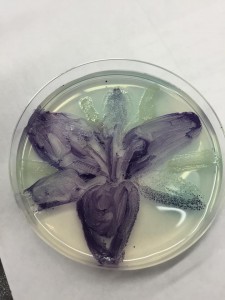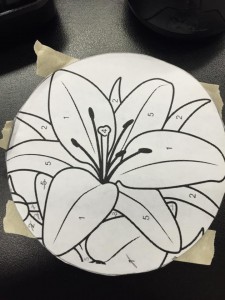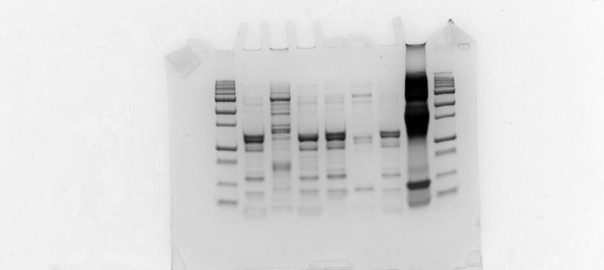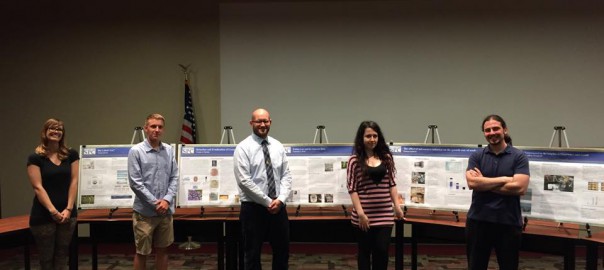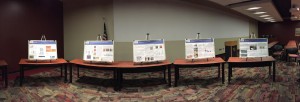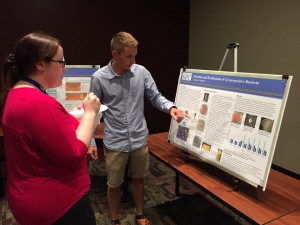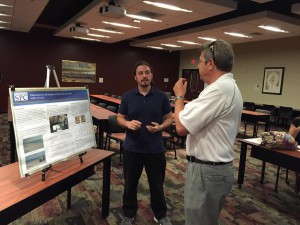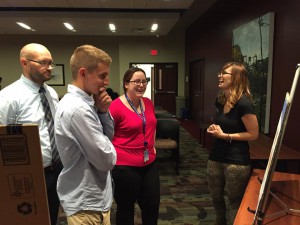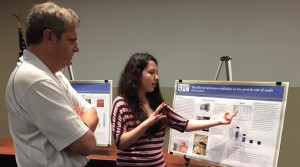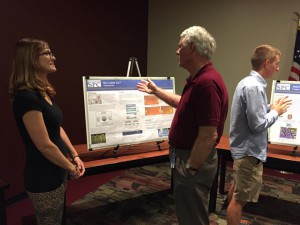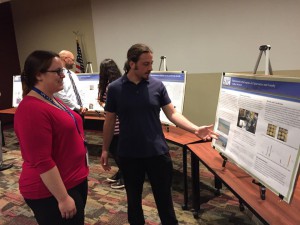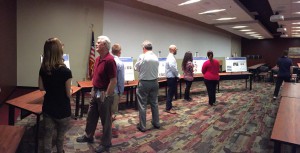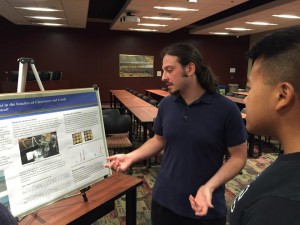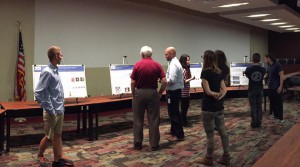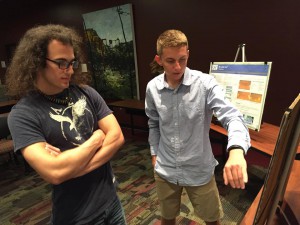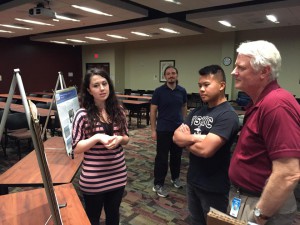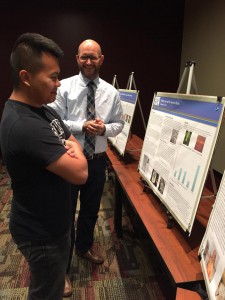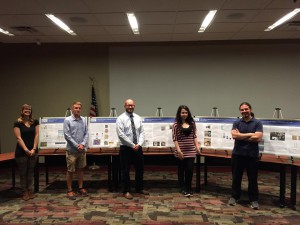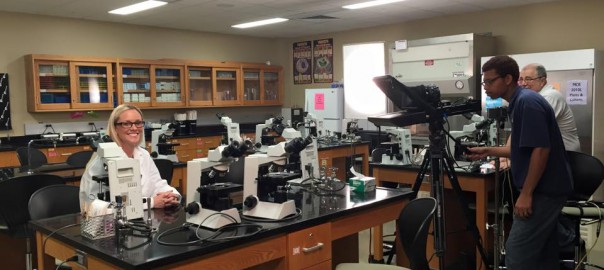Three St. Petersburg College students earned top honors at the annual Florida Branch of the American Society for Microbiology conference held in Cocoa Beach. The students belong to the Microbiology Research Student Association at the Clearwater Campus and competed against students from around the state.
Joseph Perez was awarded second place in the undergraduate poster category. Theresa Ketcham ranked fifth in the same category.
Perez presented on “Flesh Eating Touch Tank?!? Characterizing a pathogenic bacteria isolated from a touch tank.” Ketcham’s poster was entitled “Surf’s up…but is it safe? Examining the effects of rainfall on beach pollution and the potential health risks to Florida Gulf coast surfers.”
Charles Tagoe was selected to give an oral presentation on his research project entitled: “Evaluating Triclosan Resistance and the Presence of Virulence Factors in Enterococcus spp. Isolated From Sewage and Environmental Samples.” Despite only being a part of the research club for a few months, he gave a well-informed and entertaining presentation. He ranked fifth among both undergraduate and graduate oral presenters.
More than 100 students and professors attended the event and heard informative presentations on topics ranging from microbes associated with lettuce grown on the space station to the presence of disease-causing bacteria on fish.
SPC students competed against undergraduates from Florida Atlantic University, Florida International University, Florida Institute of Technology, Nova Southeastern University, Saint Leo University, University of Miami, University of South Florida, and University of Florida for best poster presentation. During the poster presentations, students interacted with faculty, graduate students and other undergraduates explaining their research goals, methodologies and outcomes.
Shannon Ulrich, professor of Natural Sciences at the Clearwater Campus, sponsored her students on the October trip, funded by the Clearwater SGA. The St. Petersburg College Foundation helped fund some of the research projects.
Other students who attended were Erin Hoyle, Roberta Spathari, Chelsea Knapp and Katherine Waters. Hoyle and Spathari presented a poster on A Potential New Source of Biosynthesized Sun Protection, while Katherine Waters presented a poster on Identification of Gram Positive Bacteria on Door Handles at a Local Hospital.
While there, the group bumped into Dr. Ray Menard, professor of Natural Sciences at the St. Petersburg/Gibbs Campus, and his two students Kelli Panzera and James Culver.
 |
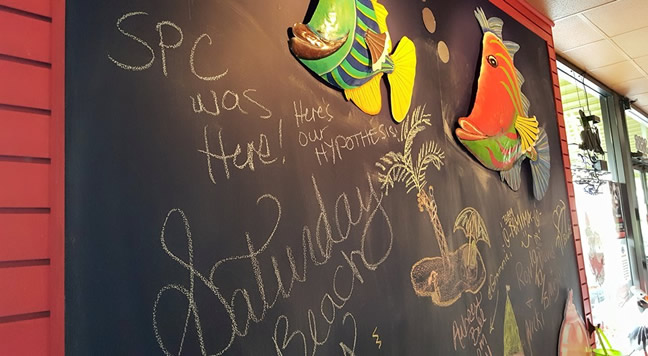 |

